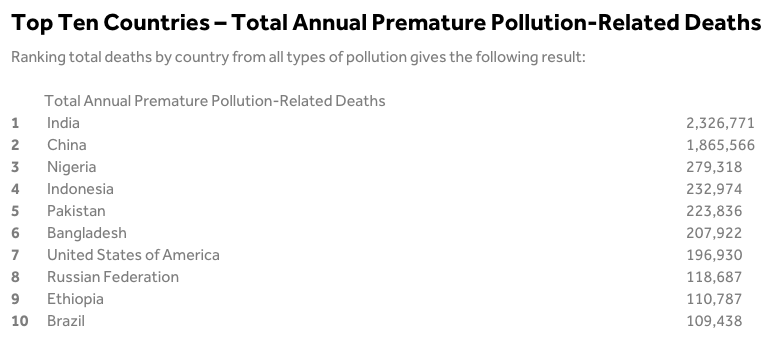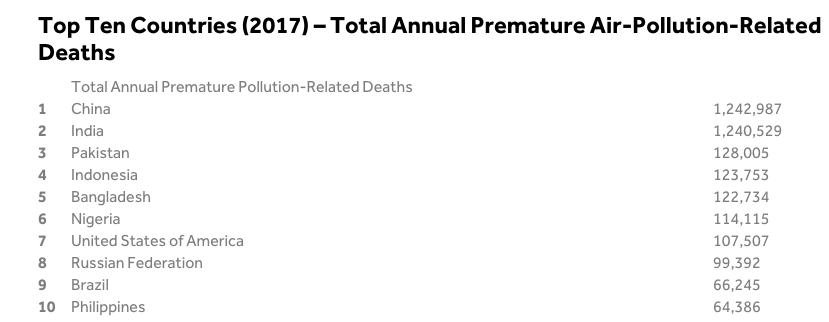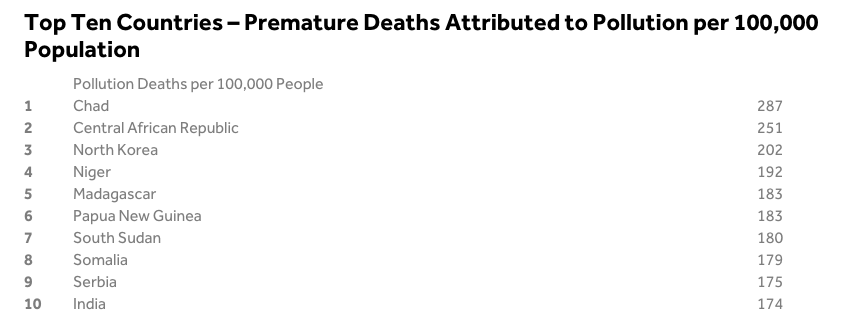India saw about 2.3 million pollution-related premature deaths in 2017, according to ‘The Pollution and Health Metrics: Global, Regional and Country Analysis’ report from the Global Alliance on Health Pollution (GAHP). Globally, over 15% of deaths and about 275 million Disability-Adjusted life years were accounted for pollution.

In fact, an astounding fact that came out from the report was that the number of global deaths linked to pollution exceeded those from tobacco use, alcohol and drugs, high-sodium diets, HIV, malaria, TB, and war.
In the list of top 10 countries with most premature deaths caused due to air pollution, India ranks second, with over 1.2 million deaths. In India, air pollution is the third highest cause of death among all health risks, ranking just above smoking. Overall, long-term exposure to outdoor and indoor air pollution contributed to nearly five million deaths from stroke, diabetes, heart attack, lung cancer and chronic lung disease in 2017. Out of these, three million deaths are directly attributed to PM2.5, half of which are generated from India and China together.

The report also includes the list of top 10 countries with the most pollution-related deaths in proportion to its population, in which India ranked 10th with 174 deaths for every 100,000 people. In total, the report includes three lists on pollution-induced premature deaths and India is the only country which is in top 10 for all the lists.

